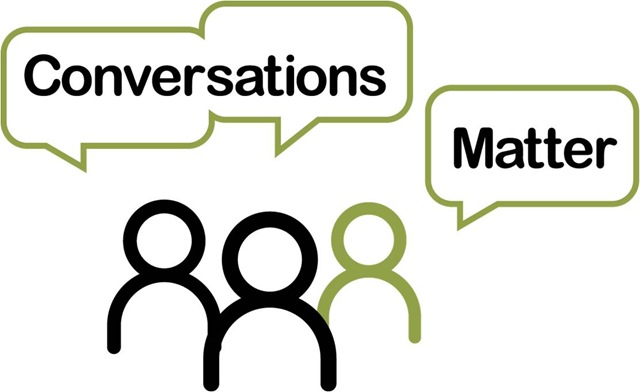Can Schools Foster the Conversations Necessary to Create Justice?

In 2000, Pat McGuigan, the conservative editor of the Daily Oklahoman, visited our high school Government class. This was an exciting time when a bipartisan school improvement coalition, MAPS for KIDS, was sponsoring an ongoing conversation between the full range of community stakeholders and our diverse student bodies.
The class challenged McGuigan regarding that day's editorial in the newspaper on community policing and crime sweeps in their neighborhood, the North Highlands. Pat described crime sweeps as irregular patrols of high-crime neighborhoods. From all over the room, the students retorted, "Yeah, every Tuesday and Thursday in the Highlands."
The class challenged McGuigan regarding that day's editorial in the newspaper on community policing and crime sweeps in their neighborhood, the North Highlands. Pat described crime sweeps as irregular patrols of high-crime neighborhoods. From all over the room, the students retorted, "Yeah, every Tuesday and Thursday in the Highlands."
Pat then explained that sweeps had to be unpredictable or they would not be effective.
"Yeah, every Tuesday and Thursday!"
"Yeah, every Tuesday and Thursday!"
Pat added, "sweeps could not stop drivers just because of their race because that would be racial profiling..."
"Yeah, they also stop us for just walking!"
Pat shifted gears and listened to the true experts on community policing, crime sweeps, and racial profiling.
In the wake of the Michael Brown and Eric Garner cases, that class discussion speaks to many aspects our society's racial polarization. Pat had always been open to interactions with all types of people, but the cross-generational, cross-cultural conversations of MAPS contributed to the journalist's decision to become a teacher at an alternative school for at-risk students.
Of course, my current students and I have been discussing the Brown and Garner cases in class. By the way, we have done so within the context of mastering our Social Studies Standards of Instruction.
If more adults could confront the anguish of poor children of color who are often seen as alien threats when just living in their home neighborhoods, we might overcome our reluctance to touch the issues of race, class, and segregation. If more adults could experience the joy of sharing a classroom with students who are empowered to question authority, study their history, contribute their insights, and debate the best ways to create equity and justice, I doubt we would have a teacher shortage in the inner city.
As usual, the poet/teacher Jose Luis Vilson, is more eloquent than I in expressing a similar insight. Vilson writes:
If you ever get the opportunity to talk to students who are most disenfranchised by Can Schools Foster the Conversations Necessary to Create Justice? | John Thompson:
